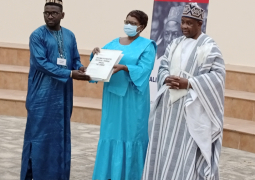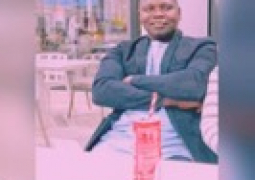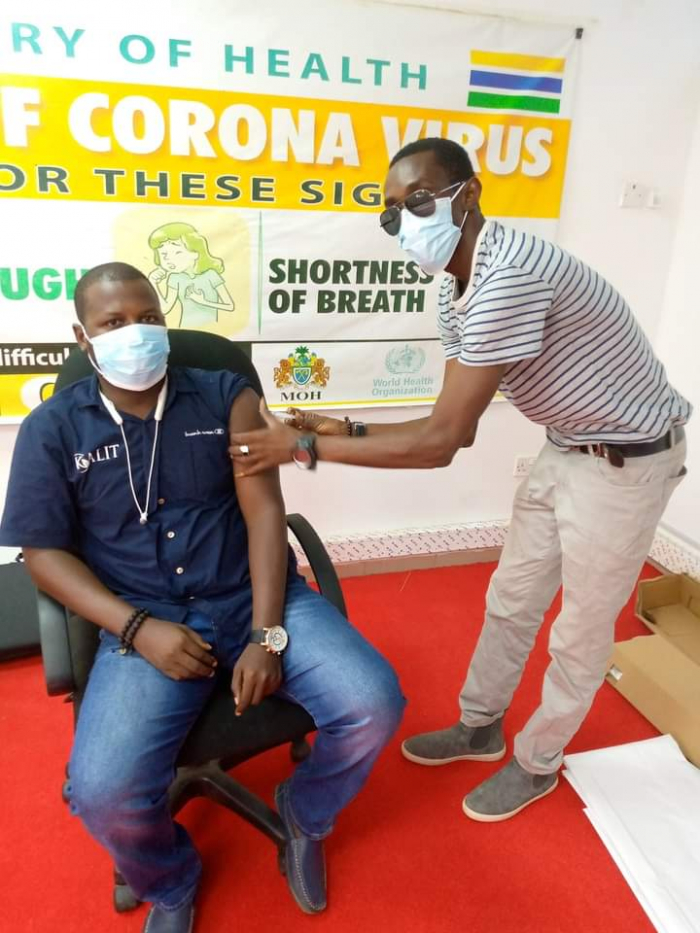
Mr. Baldeh’s attempt is to dispel rumour against the efficacy of the vaccines in the country and also to allay fears surrounding the use of the vaccines.
While advising those who are yet take the vaccine, Baldeh said that the misinformation they are getting from social media about the vaccines is not helping their efforts in the vaccination.
The Gambia registered its first coronavirus case on 17 March 2020. Since then, government continues its fight against the deadly pandemic. However, in January this year, the Gambian leader launched the national vaccination campaign and took his first dose of the AstraZeneca vaccine.
Despite the massive vaccination campaign that’s currently on-going in the country, there are fears and misconceptions within some segments of the society with lots of conspiracy theories.
However, Mr. Baldeh in an attempt to persuade Gambians to take the vaccines says they are safe and that this is not the first time The Gambia is introducing a new vaccine. He added that apart from the Covid-19 vaccine, The Gambia had introduced 13 vaccines and they all were successful.
“Gambia is Africa’s top three when it comes to vaccine coverages so no one should be in fear.”
However, the Ministry of Health says, The Gambia has received a lot of doses of the vaccines, but the turnout of people taking the injection is still low.
According to the government, only 10% of the population has so far taken the vaccine as the government targets to vaccinate about 60% of the population.
Experts stated that the Covid-19 vaccines are designed to help boost people’s immune systems to fight the virus that causes Covid-19.
The Gambia received first shipment of 36,000 Covid-19 vaccines which were delivered by UNICEF on behalf of the COVAX facility.
The Gambia is currently administering AstraZeneca, Johnson and Johnson and the Sino pharm vaccines.
Meanwhile, Gambians are taking more of the Johnson and Johnson than the others.
In an article published by The Point Newspaper, majority of Gambians believe that prayer efficacy outweighs Covid-19; a recent Afro barometer shows that most of the citizens say prayer would be more effective than a vaccine.
The pan African, nonpartisan survey research network that provides reliable data on African experiences and evaluation of democracy, governance, and quality of life indicate “about seven in 10 citizens (69%), say prayer is more effective than a vaccine can be in preventing COVID-19 infection.
“The vaccines are very effective against the coronavirus, its efficacy and safety have been tested and it’s at the highest level and that the vaccines have gone through a robust medical level or phase that has passed all three tests it should undergo before the World Health Organization’s (WHO) approval”
For Fatou Jullie Jallow, a former Africell Staff, it is a different story as she believes prayers have nothing to do with Covid-19 and it can’t prevent anyone from getting infected with the virus.
She said she has taken the vaccine not because she is fearful of the vaccine, but the misconceptions towards the vaccines made her to step back.
“A friend of mine sent me a video, and the video shows someone that took the Covid-19 vaccine and die. I don’t know how true it is, but I’ve seen the video on social media and it discouraged me.
“Also many people disclosed that when you take the vaccine after two years you will die and I don’t want to die now and leave my family behind.”
She also explains that her husband convinced her to take the Johnson and Johnson but she is still not comfortable in taking the vaccine.”
Kemeseng Sanneh a social commentator noted that he doesn’t take the vaccine because whenever he takes a vaccine, he has reactions. He believes he is allergic.
According to him this discourages him from taking the vaccine. He added that he was not advised by any medical doctor not to take it but he is not comfortable with taking it.
Sanneh concluded that social media is not helping the population to take the vaccine due to the negative messages circulating.
“I did not take the vaccine but I will not discourage people from taking it.”
Amie Ann, a student of the University of the Gambia studying Economics, and a procurement clerk, said with the information she gathered, the vaccines have side effects like blood clots and that a vaccine awakens some hidden sicknesses in the body.
“With all these, whether you take the vaccine or not you can still be infected with the virus so I decided to take all the precautionary measures alone to be safe from the virus than to take the vaccine,” she disclosed.
Louise S.A. Alsan, a journalist, and a Covid-19 survivor stated that she understands the need for taking the vaccine as she recovered from the virus. She points out that she is a new mother who has the responsibility to save herself, her family and the society at large.
Miss Alsan further encourages people to accept the realities and save themselves from the harmful effects of the virus.
This story was produced with support from Journalists for Human Rights (JHR), through its Mobilizing Media in the Fight Against COVID-19 in partnership with Mai-Media and The Point
Read Other Articles In National News
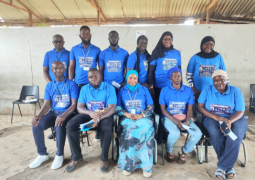
Team Innovation pledges dynamic leadership for Ferry Service Staff Association
Oct 28, 2025, 12:07 PM
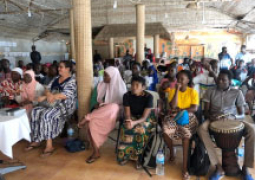
Oasis Network conveys bible translation forum for Deaf Community
Feb 7, 2025, 11:53 AM
